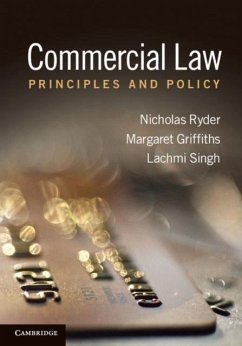This innovative textbook examines commercial law and the social and political context in which it develops. Topical examples, such as funding for terrorism, demonstrate this fast-moving field's relevance to today's concerns. This wide-ranging subject is set within a clear structure, with part and chapter introductions setting out the student's course of study. Recommendations for further reading at the end of every chapter point the reader to important sources for advanced study and revision questions encourage understanding. The extensive coverage and detailed commentary has been extensively market tested to ensure that the contents are aligned with the needs of university courses in commercial law.
Dieser Download kann aus rechtlichen Gründen nur mit Rechnungsadresse in A, B, BG, CY, CZ, D, DK, EW, E, FIN, F, GR, HR, H, IRL, I, LT, L, LR, M, NL, PL, P, R, S, SLO, SK ausgeliefert werden.
'This excellent new book provides detailed contextual discussion of modern commercial law. It covers, in an engaging and accessible manner, emerging areas of commercial law alongside the key components of traditional commercial law courses. As such it will be an invaluable resource for undergraduates, postgraduates and those in practice.' James Devenney, University of Exeter

